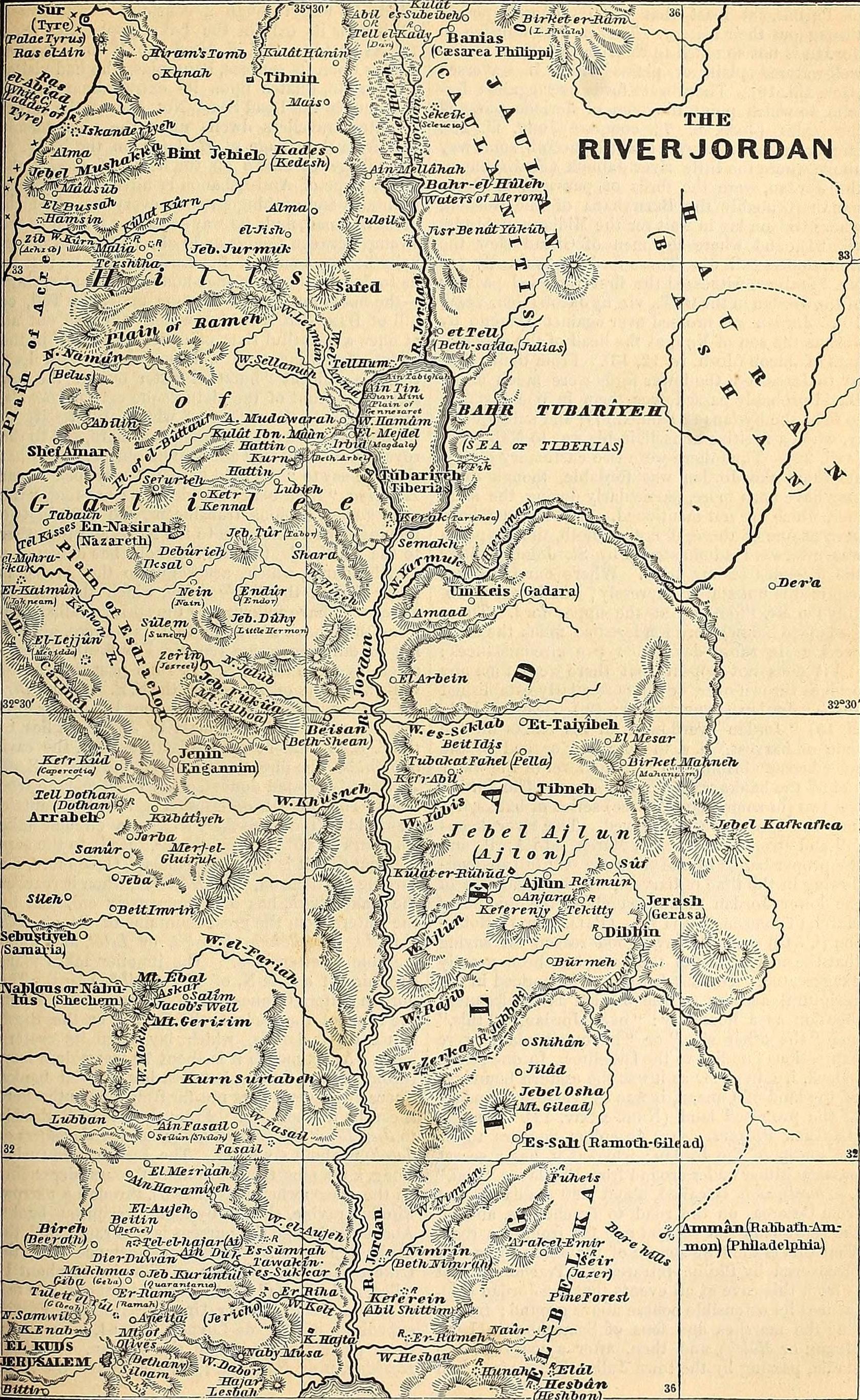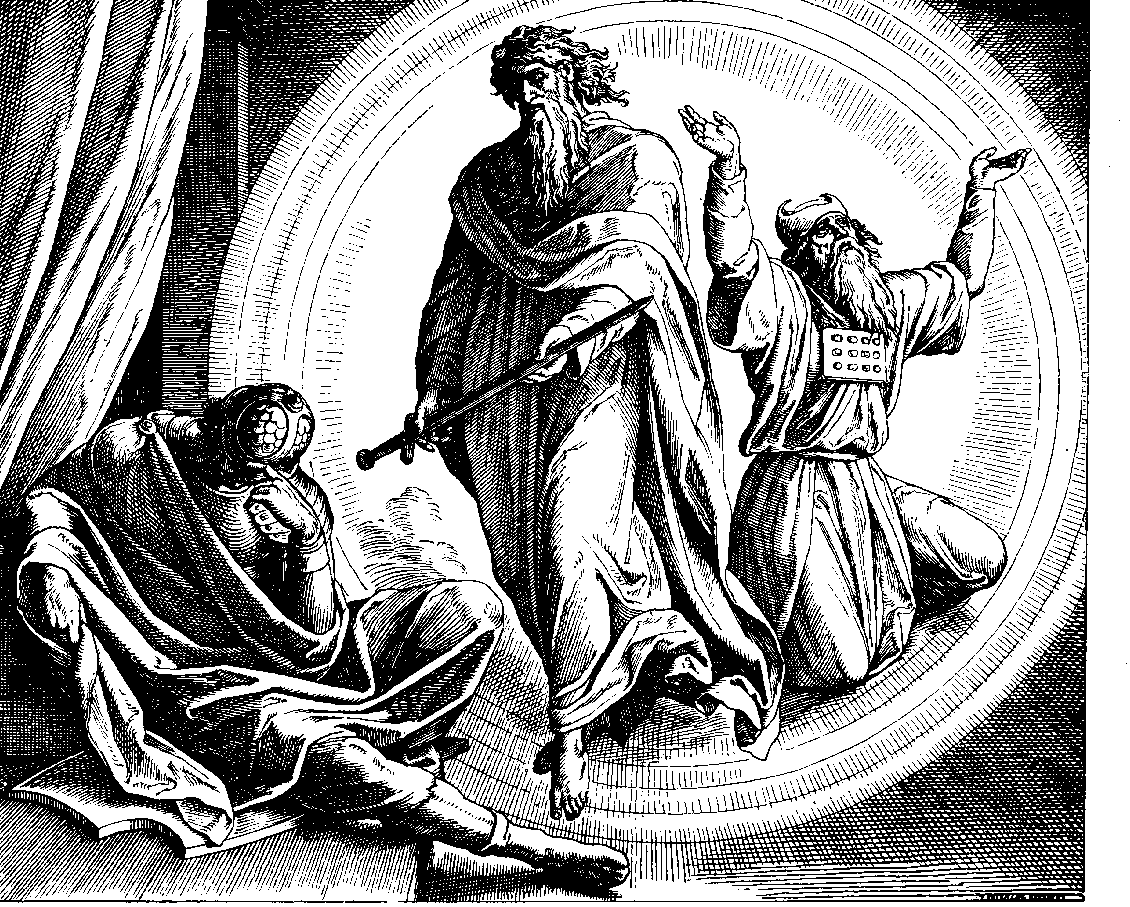|
Johanan Maccabeus
John Gaddi (Hebrew: Johanan or Yohanan) (d. ) was a son of Mattathias the Hasmonean and brother of Judas Maccabeus. The Hasmonean family lead the Maccabean Revolt against the Seleucid Empire which ruled Judea in the 160s BCE. John's activities are not as well-documented as his other brothers. He is usually considered to have been the eldest of Mattathias's five sons. He died around 160 or 159 BCE. Alternative forms of his cognomen "Gaddi" include "Gaddis" and "Gaddim". Primary sources 1 Maccabees 2 Almost everything that is known of John comes from the book 1 Maccabees, a dynastic history of the Hasmoneans written after the Maccabean Revolt was successful and the Hasmoneans had established an independent kingdom. The historian Josephus's work '' Jewish Antiquities'' Books 12 and 13 also mention John, but it appears to be largely paraphrasing 1 Maccabees, Josephus's main source for the period. 1 Maccabees introduces Mattathias and his sons in chapter 2: It is usually assu ... [...More Info...] [...Related Items...] OR: [Wikipedia] [Google] [Baidu] |
Eleazar Avaran
Eleazar Avaran, also known as Eleazar Maccabeus, Eleazar Hachorani/Chorani (Hebrew: אלעזר המכבי ''Eleazar HaMakabi'', אלעזר החורני ''Eleazar HaChorani''; died 162 BC) was the fourth son of Mattathias and the younger brother of Judas Maccabeus. He was killed at the Battle of Beth-zechariah () during the Maccabean revolt. Little is known about Eleazar, except his heroic death as was told. According to the scroll of Antiochus, his father saw in him a Zealot among zealots, like Pinhas. In it is told that Eleazar read from the Tanakh in front of the people just before the last battle began in . Death and legacy According to , during the Battle of Beit Zechariah, Eleazar identified a war elephant that he believed to carry the Seleucid King Antiochus V, due to the special armor the elephant wore. He decided to endanger his life by attacking the elephant and thrusting a spear into its belly. The dead elephant then collapsed upon Eleazar, killing him as well. Des ... [...More Info...] [...Related Items...] OR: [Wikipedia] [Google] [Baidu] |
Anchor Bible Series
The Anchor Bible Series, which consists of a commentary series, a Bible dictionary, and a reference library, is a scholarly and Commerce, commercial co-venture which was begun in 1956, with the publication of individual volumes in the List of biblical commentaries, commentary series. Over 1,000 scholars—representing Judaism, Jewish, Catholic Church, Catholic, Eastern Orthodox Church, Eastern Orthodox, Protestantism, Protestant, Islam, Muslim, Secularity, secular, and other traditions—have contributed to the project. Their works offer discussions that reflect a range of viewpoints across a wide theological spectrum. more than 120 volumes had been published, initially under oversight of the series' founding General Editor David Noel Freedman (1956–2008), and subsequently under John J. Collins (2008–2025). Each volume was originally published by Doubleday (publisher), Doubleday (a division of Random House, Inc.), but in 2007, the series was acquired by Yale University Press. ... [...More Info...] [...Related Items...] OR: [Wikipedia] [Google] [Baidu] |
Moab
Moab () was an ancient Levant, Levantine kingdom whose territory is today located in southern Jordan. The land is mountainous and lies alongside much of the eastern shore of the Dead Sea. The existence of the Kingdom of Moab is attested to by numerous archaeological findings, most notably the Mesha Stele, which describes the Moabite victory over an unnamed son of Kings of Israel and Judah, King Omri of Kingdom of Israel (Samaria), Israel, an episode also noted in Books of Kings, 2 Kings 3. The Moabite capital was Dibon. According to the Hebrew Bible, Moab was often in conflict with its Israelites, Israelite neighbours to the west. Etymology The etymology of the word Moab is uncertain. The earliest Biblical gloss, gloss is found in the Koine Greek Septuagint () which explains the name, in obvious allusion to the account of Moab's parentage, as ἐκ τοῦ πατρός μου ("from my father"). Other etymologies which have been proposed regard it as a corruption of "seed of a ... [...More Info...] [...Related Items...] OR: [Wikipedia] [Google] [Baidu] |
Jordan River
The Jordan River or River Jordan (, ''Nahr al-ʾUrdunn''; , ''Nəhar hayYardēn''), also known as ''Nahr Al-Sharieat'' (), is a endorheic river in the Levant that flows roughly north to south through the Sea of Galilee and drains to the Dead Sea. The river passes by or through Jordan, Syria, Israel, and the Palestinian territories. Jordan and the Israeli-occupied Golan Heights border the river to the east, while Israel and the Israeli-occupied West Bank lie to its west. Both Jordan and the West Bank derive their names in relation to the river. The river holds major significance in Judaism and Christianity. According to the Bible, the Israelites crossed it into the Promised Land and Jesus of Nazareth was baptized by John the Baptist in it. Etymology Several hypotheses for the origin of most of the river's names in modern languages (e.g., Jordan, Yarden, Urdunn), one is that it comes from Semitic 'Yard, on' 'flow down' <√ירד reflecting the river's declivity, possibly a ... [...More Info...] [...Related Items...] OR: [Wikipedia] [Google] [Baidu] |
Bacchides (general)
Bacchides () ( 2nd-century BCE) was a Syrian-Greek general (''strategos''), governor, friend and advisor ('' philos'') of King Demetrius I Soter of the Seleucid Empire. The Seleucid Empire was one of the Greek successor states (ruled by the diadochi) founded after the conquests of Alexander the Great, and was centered in Syria and Babylonia in the Hellenistic era. Bacchides is only known from the books of Maccabees (1 Maccabees, possibly 2 Maccabees as well) and the works of the historian Josephus. Depiction in 1 Maccabees The main source on Bacchides is the book 1 Maccabees. The work was written in the Hasmonean kingdom after the success of the Maccabean Revolt against the Seleucid Empire, and is thus a source hostile to Bacchides. Nevertheless, the book is open about the successes Bacchides achieved on behalf of the government. According to Chapter 7, Demetrius sent Bacchides in 161 BCE to Judea with an army in order to invest Alcimus with the office of High Priest of Is ... [...More Info...] [...Related Items...] OR: [Wikipedia] [Google] [Baidu] |
Battle Of Elasa
The Battle of Elasa was fought in April 160 BCE during the Maccabean Revolt between Judean rebels led by Judas Maccabeus (Judah Maccabee) and an army of the Seleucid Empire under the command of Bacchides. The battle resulted in the triumph of the Greek Syrian forces, the defeat of the Maccabees, and the death of Judas Maccabeus. The leadership of the Maccabees passed to Judas's brother Jonathan Apphus (Yonatan), who continued to fight against Bacchides for the remainder of 160 BCE. The Seleucids largely triumphed; control of the cities was restored to them, including Jerusalem, hostages of important Jewish families were taken, and Greek-aligned garrisons were placed around Judea. Despite this setback, unrest continued in the countryside. The Hasmonean sons of Mattathias continued to oppose the government in the following eight years, and eventually succeeded in gaining allies both among Seleucid rulers and the Romans that would allow for autonomy. Judas's brother Simon Thas ... [...More Info...] [...Related Items...] OR: [Wikipedia] [Google] [Baidu] |
Nicanor (Seleucid General)
Nicanor (; ; died 161 BCE) was a Syrian-Greek general (strategos) who served the Seleucid Empire during the reigns of kings Antiochus IV Epiphanes and Demetrius I Soter. He served during the Maccabean Revolt in Judea, then part of the Seleucid Empire, and served for a time as governor in Jerusalem. Relations between the government and the Jewish rebels eventually turned sufficiently hostile that he threatened the priests at the Second Temple and led an army to find and defeat Judas Maccabeus's followers, but he and his army were defeated at the Battle of Adasa. Nicanor was killed, his corpse was desecrated, his head and right hand hung for public display back in Jerusalem, and a new festival was declared to celebrate his defeat. As Seleucid literature was ultimately not preserved, almost all of what is known of Nicanor comes from the Jewish books 1 Maccabees and 2 Maccabees. These books were preserved by becoming part of the Septuagint, a collection of Jewish writings in Greek tha ... [...More Info...] [...Related Items...] OR: [Wikipedia] [Google] [Baidu] |
2 Maccabees 8
The book 2 Maccabees contains 15 chapters. It is a deuterocanonical book originally written in Koine Greek that is part of the Catholic, Eastern Orthodox, and Oriental Orthodox Christian biblical canons. It is still considered an important source on the Maccabean Revolt by Jews, Protestants, and secular historians of the period who do not necessarily hold the book as part of a scriptural canon. The chapters chronicle events in Judea from around 178–161 BCE during the Second Temple Period. Judea was at the time ruled by the Seleucid Empire, one of the Greek successor states that resulted from the conquests of Alexander the Great. 2 Maccabees was written by an unknown Egyptian Jew. The account is distinct from the book 1 Maccabees, which was written by someone in the Hasmonean kingdom that was formed after the success of the revolt. In general, 2 Maccabees has a more directly religious perspective than 1 Maccabees, frequently directly crediting prayers, miraculous int ... [...More Info...] [...Related Items...] OR: [Wikipedia] [Google] [Baidu] |
2 Maccabees
2 Maccabees, also known as the Second Book of Maccabees, Second Maccabees, and abbreviated as 2 Macc., is a deuterocanonical book which recounts the persecution of Jews under King Antiochus IV Epiphanes and the Maccabean Revolt against him. It concludes with the defeat of the Seleucid Empire general Nicanor in 161 BC by Judas Maccabeus, the leader of the Maccabees. 2 Maccabees was originally written in Koine Greek by an unknown diaspora Jew living in Hellenistic Egypt. It was likely written some time between 150 and 100 BC. Together with the book 1 Maccabees, it is one of the most important sources on the Maccabean Revolt. The work is not a sequel to 1 Maccabees but rather its own independent rendition of the historical events of the Maccabean Revolt. It both starts and ends its history earlier than 1 Maccabees, beginning with an incident with the Seleucid official Heliodorus attempting to tax the Second Temple in 178 BC, and ending with the Battle of Adasa in 161 BC. So ... [...More Info...] [...Related Items...] OR: [Wikipedia] [Google] [Baidu] |
Gad (deity)
Gad was the name of the pan-Ancient Semitic religion, Semitic deity, god of fortune, usually depicted as a male but sometimes as a female, and is attested in ancient records of Aram (biblical region), Aram and Arabia. Gad is also mentioned in the Bible as a deity in the Book of Isaiah (Isaiah 65:11 – some translations simply call him (the god of) Fortune), as having been worshipped by a number of Hebrews during the Babylonian captivity. Gad apparently differed from the god of destiny, who was known as Meni (deity), Meni. The root verb in ''Gad'' means ''cut'' or ''divide'', and from this comes the idea of fate being ''meted out''. Israelite connection It is possible that Gad (son of Jacob), the son of Jacob named ''Gad'' is named after Gad, or that Gad is a theophoric name, or a descriptive. Although the text presents a different reason, the (ketub) quotation of Zilpa (Gad's mother) giving the reason of Gad's name could be understood that way. How widespread the cult of Gad ... [...More Info...] [...Related Items...] OR: [Wikipedia] [Google] [Baidu] |




